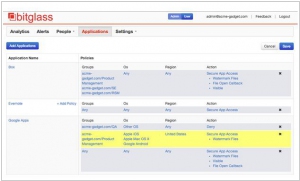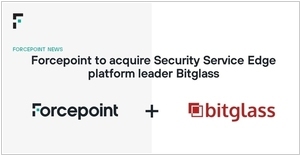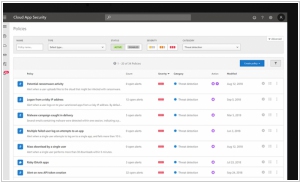Bitglass vs Microsoft Cloud App Security
August 05, 2023 | Author: Michael Stromann
10

Bitglass is a cloud access security broker and the leader in total data protection. We enable enterprises to migrate to SaaS applications. With cloud apps, your corporate data leaves the network. Keep cloud data secure and compliant anywhere it goes. BYOD demands a balance between security and employee productivity. Learn how MDM falls short and how Bitglass can help.
Bitglass and Microsoft Cloud App Security are both cloud access security broker (CASB) solutions that focus on securing organizations' cloud applications and data. However, they have some key differences in terms of their approach and feature set.
Bitglass is a comprehensive CASB platform that provides advanced security features for a wide range of cloud services and data. It offers capabilities such as data loss prevention (DLP), threat protection, access controls, encryption, and shadow IT discovery. Bitglass provides visibility and control over data as it moves between devices, applications, and cloud services, ensuring secure access and protecting against data breaches.
Microsoft Cloud App Security, on the other hand, is part of the broader Microsoft 365 suite of products and focuses primarily on securing Microsoft cloud applications and services. It provides features like threat protection, user behavior analytics, conditional access policies, and data loss prevention for Microsoft cloud applications such as Office 365, Azure, and Dynamics 365. It integrates well with other Microsoft security and productivity tools.
One of the key differences between Bitglass and Microsoft Cloud App Security is the breadth of cloud services they support. Bitglass offers support for a wide range of cloud applications and services beyond just Microsoft offerings, providing a more holistic approach to cloud security. Microsoft Cloud App Security, on the other hand, focuses specifically on securing Microsoft cloud services, which may be advantageous for organizations heavily invested in the Microsoft ecosystem.
Additionally, Bitglass offers features like shadow IT discovery and access controls that extend beyond just securing the cloud services themselves. It provides visibility into unsanctioned cloud applications and allows organizations to apply policies to control access and data sharing. Microsoft Cloud App Security primarily focuses on securing Microsoft cloud applications but integrates well with other Microsoft security tools and provides advanced threat protection capabilities.
See also: Top 10 Cloud Security Software
Bitglass is a comprehensive CASB platform that provides advanced security features for a wide range of cloud services and data. It offers capabilities such as data loss prevention (DLP), threat protection, access controls, encryption, and shadow IT discovery. Bitglass provides visibility and control over data as it moves between devices, applications, and cloud services, ensuring secure access and protecting against data breaches.
Microsoft Cloud App Security, on the other hand, is part of the broader Microsoft 365 suite of products and focuses primarily on securing Microsoft cloud applications and services. It provides features like threat protection, user behavior analytics, conditional access policies, and data loss prevention for Microsoft cloud applications such as Office 365, Azure, and Dynamics 365. It integrates well with other Microsoft security and productivity tools.
One of the key differences between Bitglass and Microsoft Cloud App Security is the breadth of cloud services they support. Bitglass offers support for a wide range of cloud applications and services beyond just Microsoft offerings, providing a more holistic approach to cloud security. Microsoft Cloud App Security, on the other hand, focuses specifically on securing Microsoft cloud services, which may be advantageous for organizations heavily invested in the Microsoft ecosystem.
Additionally, Bitglass offers features like shadow IT discovery and access controls that extend beyond just securing the cloud services themselves. It provides visibility into unsanctioned cloud applications and allows organizations to apply policies to control access and data sharing. Microsoft Cloud App Security primarily focuses on securing Microsoft cloud applications but integrates well with other Microsoft security tools and provides advanced threat protection capabilities.
See also: Top 10 Cloud Security Software
Bitglass vs Microsoft Cloud App Security in our news:
2021. Forcepoint to acquire cloud security startup Bitglass

Forcepoint is to acquire Bitglass, a cloud security startup. This acquisition is expected to boost the efforts of the platform security vendor in making advanced data security and threat protection technologies more accessible and user-friendly for organizations. Bitglass, founded in 2013, has developed the Security Service Edge platform, which combines various technologies to secure access to and usage of sensitive data and intellectual property in web and cloud traffic, as well as private data center applications. Forcepoint acknowledged the inclusion of Cloud Access Security Broker, Secure Web Gateway, Zero Trust Network Access, Cloud Security Posture Management products, and Data Loss Prevention capabilities in this platform. Before the acquisition, Bitglass was one of the few Cloud Access Security Broker vendors that had not been acquired yet, alongside Netskope. Notably, Bitglass and Netskope had engaged in legal battles over allegations of patent infringement and theft of confidential information during the past year.



